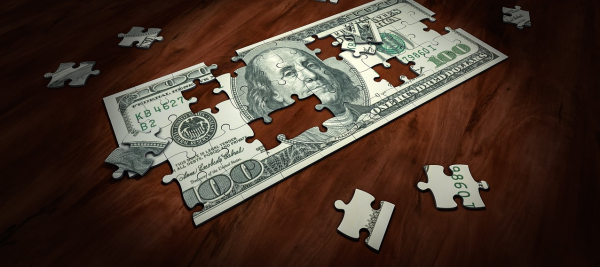15 Tips to Manage Personal Finances
Money is an undeniable and crucial aspect of our lives. Our lifestyle, socio-economic status, jobs, quality of life, health and well being all revolves around finances. Hence, it has become necessary to have a basic understanding of how to manage your personal finances. Managing finances effectively gives you an idea about your income and expenditures, assists you in planning for financial emergencies, makes calculating and paying taxes easy, helps you save for your future and prevents you from bad debts.

Here are a few tips to manage your personal finances in order to have control over finances and attain greater financial stability in the future.
Don’t spend more than you earn
Spending less money than you earn is the most obvious habit that you need to inculcate while managing finances. Yet, according to CNBC, 78% of Americans splurge more than they should and live paycheck to paycheck. Spending less than your earnings is easier said than done. To get out of the clutches of paycheck to paycheck lifestyle you need to keep track of your expenses which can be done by writing them down or by using apps like Spendee or Mvelopes.
Budgeting
Budgeting does not always mean cutting on costs. Budgeting means nothing but planning your finances in a proper way so that you are left with the little surplus amount at the end of each month which you can save and utilize during the financial crisis. For effective budgeting divide your income by 50%, 30%, and 20% slots respectively. Here, 50% of your earnings go into unavoidable expenditures like housing, transport, food, etc. 30% is allotted for the other expenses and the remaining 20% go to the saving accounts. This is the easiest and convenient way to manage your cash but you may need to adjust the percentages according to your lifestyle. There are various apps which can assist you in planning your budgets.
Savings First
Putting your savings aside first when you receive your paycheck can have a major effect on your personal finances. This is because when you pay yourself first there are fewer chances of you spending it on unnecessary items. This promises you a secured future and also acts as a buffer zone in times of emergencies.
Cutting unnecessary expenses
When you save first naturally you will have to cut on unnecessary expenses. Opt for energy sufficient and cost-effective options and try to utilize everything that you have to its optimum level.
Financial Goals
Set financial goals according to your priorities. This will give you a clear idea of the direction that you want to take in the future. These goals can be short-term goals which act as stepping stones to the long-term goals. Your goals can be anything like buying a new house or investing money depending on your priorities.
Managing Credit Cards
When you purchase with credit cards banks charge you interest for borrowing money if you fail to return the money in time. On the other hand, if you use credit cards wisely and pay the balance off each month than credit card companies may reward you with travel points, cash-backs, etc. Keeping track of your credit scores and reports is always a good idea.
Say No to Bad Debts
Anything purchased on credit which will lose value in the future is bad debt. For example, credit card debts and auto loans or home loans can be termed as bad debts. Thes debts come with interest which you need to pay from time to time and can considerably affect your finances. Hence it’s better to stay away from such kind of debts.
Emergency Funds
Life is unpredictable and emergency situations can pop up anytime. Therefore set aside money equivalent to 3 to 6 months expenses so that you can tackle such situations without having to cut on your budget or having to compromise on your future financial well-being.
Invest
It’s good to have money in a savings account for dealing with emergency situations. But money in these accounts losses its value with the time. It has a very small annual percentage yield of 0.06% with 1.7% rate of inflation. That means with passing time, cash in your saving accounts will have lesser buying power. Hence investing in real estate, stocks, peer-to-peer lending, exchange-traded funds is a better option to earn returns and increase your asset values. Search for investment options that provide high returns and have fewer risk factors.
Side Hustle
If your salary is not enough to strike a balance between income and expenditure, you should consider taking up a part-time job or starting a side business to earn extra income. Converting your hobby into a business is always a great idea in such instances as hobbies tend to refresh your mind after a long tiring day.
Shop Around
We always try to find the best deals when we shop for consumer goods. Similarly, there are various financial services and financial firms that are competing with each other in the market. Search and ask for better deals for mortgages, better interest rates, phone bills or electricity contracts. When renewing contracts if rates are increased due to inflation or any other such reason ask providers what gives. Chances are you will be offered a better deal for being a long-term customer.
Mortgage for Long-Term Debt
If you ever fall short for money then go for mortgage debts. Mortgage debts are long-term debts when compared to credit card debts as they are given against your house. They also have considerably fewer interest rates of about 4% to 5% when compared to others.
Start investing and/or saving early
When you start saving and investing in your twenties, you can take advantage of compound interests. In compound interests, you can gain returns over the returns. This formula works wonders with assets that can provide greater returns on average for lengthy durations. Long-term investments also tend to provide considerably more returns than short-term returns.
Be Cautious
When investing or borrowing funds be cautious and stay away from too good to be true kind of schemes and offers. Whether its high returns with fewer risks or low-interest rates, anything that feels dubious or too good should be always avoided. Many fraudsters and money launders come up with lucrative fake schemes and offer to lure the people.
Do not follow the trend
Don’t follow market trends blindly. Study and analyze or even take expert advice before you take any such decisions. In 2018, Bitcoin was the trend everywhere. Investing it at $US19000 per coin just because it was trending would have resulted in a bad investment. Often people are running after a particular investment option, its best to go in exactly opposite direction.
Conclusion
Financial literacy is one of the most significant aspects of our day to day life which has been given little or zero importance in the syllabus of the high school students. Understanding how money works and knowing how to draw a budget, where to invest, setting financial goals, planning your finances, learning to save for emergencies, etc can assist many of us to lead a financially stable and stress-free life.
Author bio
Rebecca is a freelance writer who has more than 6 years of writing experience. And has keen interest writing on personal finance, food, travel and education.







![Top Programming Languages for Smartphone App Development [Infographic]](https://technofaq.org/wp-content/uploads/2017/01/top-programming-language-infographic-150x150.jpg)








